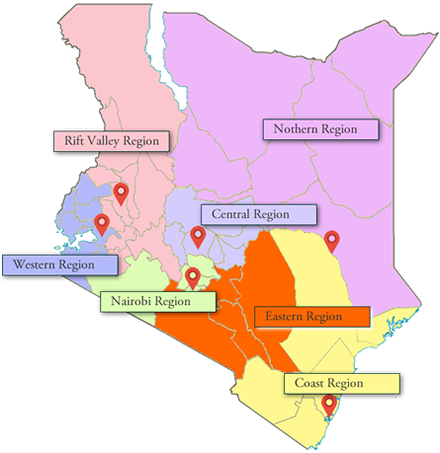
Fighting the Good Fight: Farmers urged to join the war against counterfeit agro-inputs
- M/s. Flora Mutahi. Chair, Anti-Counterfeit Authority
- News and Events
- Hits: 1608
Counterfeit Agro-Inputs a threat to farmer livelihoods, food security and sustainable agriculture
Over the years, the agricultural sector remains the undisputed backbone of the Kenyan economy generating a third of Kenya's GDP and accounting for 60% of the exports. The sector employs more than 40% of the total working population and accounting for about 70% of informal employment in the rural areas. But despite being the mainstay of the Kenyan economy, it has not been performing to its full potential due to a number of challenges.
The Counterfeit Agro-input threat
One of the emerging challenges is associated with increased sale of counterfeit agricultural inputs like seeds, fertilizer, pesticides and other agro-inputs. Genuine and quality seeds are important components in making any country achieve high agriculture productivity and overall food security. In recent years, there has been an increase in reported cases at the Anti-Counterfeit Authority majorly targeting the 'grain-basket' counties of this country. The cases involve counterfeit seeds and fertilizers, fraudulent labelling, regulatory offences, trademark infringements and thefts of proprietary materials like labels and packaging materials.
Counterfeits products are posing a serious and growing challenge to farmers as they bear financial losses of lower crop yields, counterfeit agrochemicals and fertilizers pose potential harm to their land contaminating soils and damaging the environment.
Recent studies
While the government has put up measures in the war against trade in counterfeits, these products are increasingly still finding their way into the market. Statistics from the Agrochemicals Association of Kenya (AAK) shows that the country is losing at least Sh120 billion in revenue to unregistered agro-chemicals dealers who often sell counterfeit pesticides. This counterfeit market accounts for 15 to 20 per cent of agrochemicals being distributed in the country, posing a threat to farmers and the environment.
Further, recent research findings by the Anti-Counterfeit Authority on the national baseline surveys on counterfeiting and other forms of illicit trade revealed that the level of public awareness on matters of illicit trade stood at 64.14% with that of counterfeiting at 66.42% as at 2019.
Addressing the demand side
Despite the high awareness level, the reason as to why people continue to buy counterfeit goods knowingly poses a big puzzle to policy makers and implementers.
It is therefore important to address the demand side of counterfeiting by sensitizing farmers and retailers on the risk of counterfeiting and how to verify genuine products. It is unfortunate that farmers are increasingly using hybrid seeds and fertilizers and at the same, they have become a prime target for counterfeiters especially for known trademarks. Some reasons attributed to this are low literacy levels coupled with low brand awareness levels making them purchase 'pass-offs' and look-alikes of their popular brands.
Farmers and retailers must be educated to buy from trustworthy sources and never buy from the "black market" (e.g. from an alternative supply-chain or any unauthorized outlets). They should also insist for a correct and complete invoice, including the name of the product(s) and/or quantity purchased.
Way forward
From our experience in the multi-agency collaboration, we have learned that tackling the issue of counterfeits requires a nuanced and comprehensive approach involving all stakeholders. Other than farmer these targeted exposures, we have looped in the private sector in this war. The owners of the intellectual property (IP) rights (such as the trademarks, industrial designs, etc) play a great role in product authentication, IP protection and enforcement. Any initiative to inform citizens about the importance of IP rights protection including securing supply chains against counterfeit must involve the intellectual property rights owners. We have had notable collaboration with industry players like Kenya Association of Manufacturers and the Agro-Chemical Association of Kenya in creating public awareness as well as supporting enforcement.
The way forward is to not only to increase engagement with farmers, but run parallel programs with county governments, seed producers and processors, traders and distributors to counter illegal trade in agro-inputs. ACA will continue to strengthen advocacy with all relevant stakeholders, including government ministries, agencies, judicial systems and international organizations, to improve legal systems and enforcement conditions, capacity and capabilities.
It is the right time for farmers to join the good fight for their own benefit.



